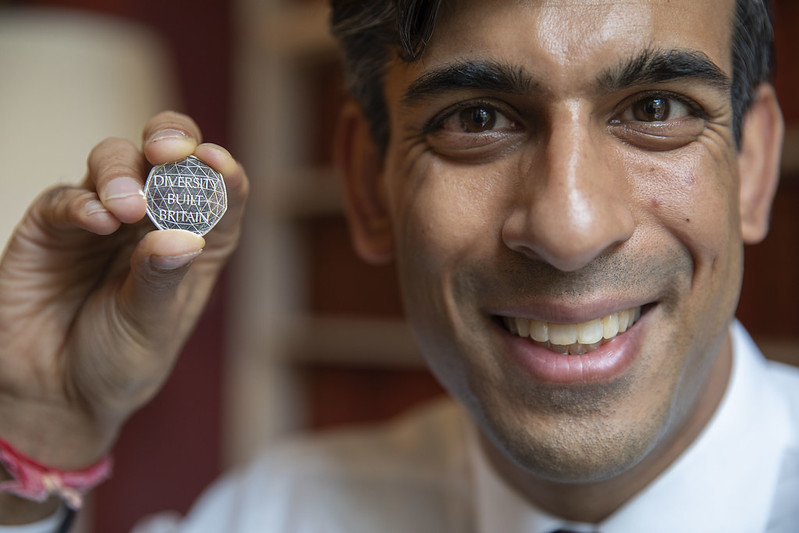Lovers Rock: The Sound of Black British Romance
Soft Rebellion and a New Sound for a New Generation In the mid-1970s, as the sound of Jamaican reggae and Trinidadian soca pulsated through London’s Caribbean communities, a gentler rhythm began to emerge. It was reggae’s softer cousin; romantic, soulful, and distinctly Black-British. This new sound came to be known as Lovers Rock, a name […]

Soft Rebellion and a New Sound for a New Generation
In the mid-1970s, as the sound of Jamaican reggae and Trinidadian soca pulsated through London’s Caribbean communities, a gentler rhythm began to emerge. It was reggae’s softer cousin; romantic, soulful, and distinctly Black-British. This new sound came to be known as Lovers Rock, a name which captured both its sweetness and its subversive spirit. At a time when Black-British youth were confronting racism, unemployment, and alienation, Lovers Rock offered warmth, tenderness, and affirmation. It told the story of love in the heart of the diaspora.
The Birth of a Sound – Introducing Louisa Marks
The origins of Lovers Rock trace back to London, where a generation of children born to Caribbean immigrants were finding their own identity. Their parents loved ska, rocksteady, and roots-reggae, but the young people wanted something that reflected their own experience: youthful, Caribbean, and softly rebellious. The spark came in 1975, when a 14-year-old girl from South London named Louisa Marks recorded a cover of Robert Parker’s Caught You
in a Lie. Produced by the Lover’s Rock label (founded by Dennis Harris, John Kpiaye, and Dennis Bovell), the record’s lilting rhythm and emotional delivery resonated deeply. It became an underground hit and is widely regarded as the first official Lovers Rock single. It was the lead single from her album Breakout which spawned many hits including Sixth Street.
With that one song, a new subgenre of reggae was born. Following Louisa’s success, other young singers
stepped up to the microphone. The all-female trio Brown Sugar, featuring Caron Wheeler (later of Soul II Soul),
Pauline Catlin, and Carol Simms (better known as Kofi), recorded the 1977 anthem I’m in Love with a Dreadlocks. Its blend of romantic longing and Rastafarian pride captured the new mood of the time; love, but with consciousness. Meanwhile, producers such as Dennis Bovell and Lloyd Coxsone began to craft lush, bass-heavy backdrops that softened the militant edge of roots reggae, replacing it with tender harmonies and melodic bass lines. The Lovers Rock rhythm became the soundtrack to house parties, blues dances, and London youth clubs spaces, where Black teenagers could slow dance, flirt, and dream.
The Queens of Lovers Rock (Late 1970s – 1980s)
By the end of the 1970s, a rich list of talented female singers had transformed Lovers Rock from a local scene into a national movement. Queen among them was Janet Kay, whose 1979 single Silly Games, produced by Dennis Bovell, soared to No. 2 on the UK Singles Chart. Her effortless falsetto and the song’s unforgettable high note made it a timeless anthem; and the first Lovers Rock hit to cross into the mainstream. Kay became known as the “Queen of Lovers Rock.”
In 2020 Silly Games saw a resurgence in popularity when it was featured as the signature song on the soundtrack to Steve McQueens Lovers Rock, a part of the award-winning Small Axe series of films about the Black British community.
Close behind Janet Kay at the top of the genre was Carroll Thompson, whose 1981 album Hopelessly in Love remains a masterpiece of the genre. Thompson’s songs, I’m So Sorry and the title track, combined heartbreak with independence, showing that the genre could be both emotional and empowering. Her elegant phrasing and polished songwriting brought Lovers Rock a touch of sophistication.
Another standout was Jean Adebambo, a self-produced singer who created classics like Paradise and Reunited. A trained nurse, Adebambo embodied the do-it-yourself ethos of the scene, balancing her profession with a successful music career. Her songs became staples of the genre’s golden age.
Male singers also played vital roles in shaping Lovers Rock’s identity. Victor Romero Evans and Winston Reedy,
both veterans of the London reggae circuit, brought smooth vocal stylings that rivalled their Jamaican contemporaries. Evans’s At the Club and Reedy’s Dim the Light added male perspectives to a genre often dominated by female voices.
The Golden Era (1980s–1990s)
As the 1980s unfolded, Lovers Rock reached its golden era, with a mix of chart success, vibrant live performances, and enduring classics. Artists such as Sandra Cross became household names among reggae fans. Her hits Country Living and You’re Lying defined the era’s lush, sentimental sound. Kofi, formerly of Brown Sugar, launched a strong solo career in the mid-1980s with tracks like Didn’t I and Black Pride. Her music reflected a blend of romantic yearning and cultural confidence.
At the same time, Peter Hunnigale, affectionately known as “Mr. Honey Vibes,” brought suave, soulful charm to his Lovers Rock ballads, keeping dance floors filled for years after he released his debut Be My Lady.
Another distinctive voice was Deborahe Glasgow, who found success with Champion Lover. Though her career was tragically brief, her song gained new life when reworked by dancehall artist Shabba Ranks as the duet Mr.Loverman. The track’s international fame was a reminder of Lovers Rock’s influence far beyond British shores.
Maxi Priest, is probably the most well-known Lovers Rock artist to date. He crafted a smooth blend of Lovers Rock and pop reggae, which led to several crossover hits such as Wild World and Close to You. Priest brought the genre to MTV and the global charts, proving that the tenderness of Lovers Rock could thrive in the mainstream.
Even beyond the UK, the sound found kindred spirits. British-born, Jamaica-raised JC Lodge recorded the hit Someone Loves You, Honey in 1980, which became an anthem across the Caribbean and in the UK, following up with a bigger hit, Telephone Love. Her work bridged both scenes, confirming that Lovers Rock had become an international language of love.
The Evolution and New Generation (2000s–Present)
By the 1990s, Dancehall and Ragga had largely overtaken Lovers Rock on the airwaves, but the genre never disappeared. Artists like Don Campbell and Michael Gordon carried the torch, keeping the romantic reggae sound alive on British radio and in community events. Lovers Rock remained a staple of sound system culture; music for slow dances, weddings, and quiet Sunday afternoons.
In the 2000s and 2010s, a younger wave of artists began reviving and reinterpreting the style. Bitty McLean, known for It Keeps Raining and Walk Away from Love, fused classic reggae warmth with polished pop production. Janet Lee Davis and Don Ricardo sustained the spirit of the earlier era, blending smooth vocals with modern arrangements. Among the newest voices, Christopher Ellis, the son of rocksteady legend Alton Ellis, has emerged as a leading figure. Signed to Damian Marley’s Ghetto Youths label, his songs, such as Still Go a Dance, echo his father’s legacy while carrying Lovers Rock into the future. Similarly, Welsh-Jamaican singer Aleighcia Scott has drawn praise for her contemporary takes on classic themes of love and devotion.
Legacy and Cultural Impact
Lovers Rock is more than a music genre, it’s a cultural story of Black Britain, a sign of the softness that served as a cushion to soothe the harshness of life in Britain. It gave young Caribbean-British people in the 1970s a way to express affection, pride, and tenderness in a society that often stereotyped them. Its house parties became safe spaces for love and community, away from the hostility of the streets. The genre’s influence has rippled through time. You can hear its DNA in British R&B, Neo-soul, and even pop acts like Soul II Soul, Sade, Estelle, Cleo Sol and Mahalia.
The 2011 documentary The Story of Lovers Rock by Menelik Shabazz, and Steve McQueen’s 2020 film Lovers Rock (part of the Small Axe series), has reignited interest in the scene, highlighting its social and emotional power. Today, when new generations rediscover Silly Games or Hopelessly In Love, they are not just hearing songs, they are hearing the heartbeat of a community. Lovers Rock continues to remind us that love, in all its forms, is resistance.

























